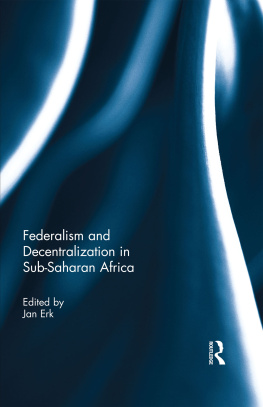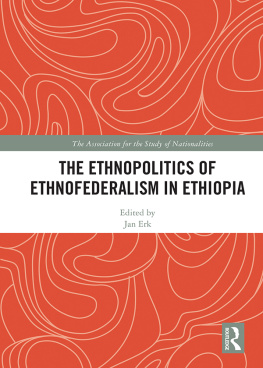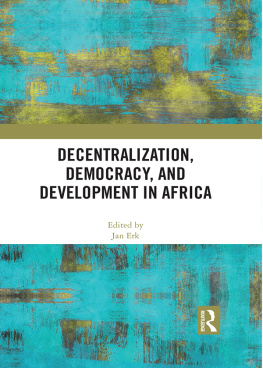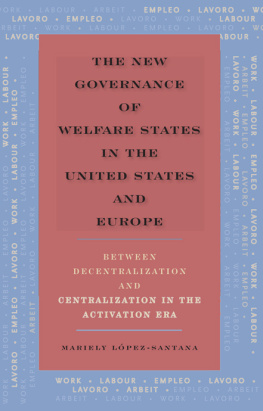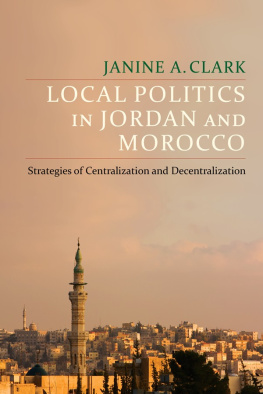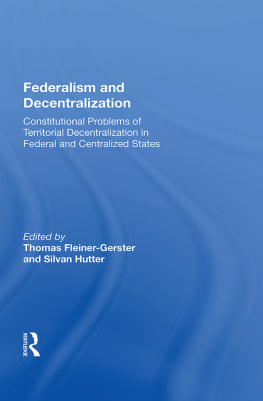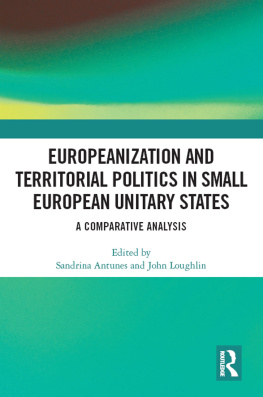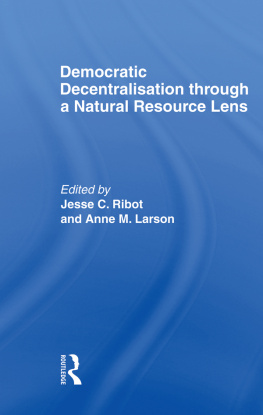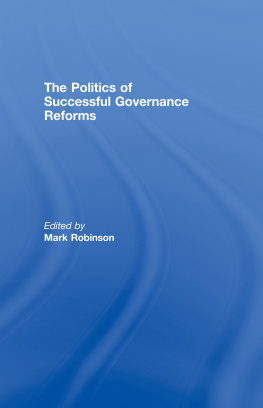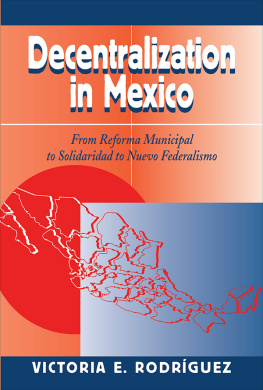Federalism and Decentralization in
Sub-Saharan Africa
The 1990s were marked by democratic reforms throughout Africa, which went in tandem with decentralization reforms. The chapters of the volume all highlight the gradual changes that have taken place since. Long-term structural uncodified factors be it societal, economic, geographic, demographic seem to have interacted with the constitutional clauses introduced during the reforms.
Some chapters look at how decentralization slowly gave way to recentralization because none of the new subnational entities were politically and economically strong enough to balance off the center; some look at how inherent deficiencies in infrastructure and personnel at the subnational level brought the central government back in; some look at how different subnational units ended up working differently due to differences in demographic and social factors; some look at how uncodified factors came to determine how national politics functioned; some look at how decentralization created new conflicts between ethnic groups competing for the control of the new entities; some look at how decentralization blew new life into traditional authorities.
This book was original published as a special issue of Regional and Federal Studies.
Jan Erk is currently the Jan Smuts Memorial Fellow at the University of Cambridge, UK. He completed his doctorate at McGill University and his post-doctoral studies at the University of Toronto in Canada. In 2018, he will become a Fellow of the Stellenbosch Institute for Advanced Study (STIAS), in South Africa.
Federalism and Decentralization in
Sub-Saharan Africa
Edited by
Jan Erk
First published 2018
by Routledge
2 Park Square, Milton Park, Abingdon, Oxon, OX14 4RN, UK
and by Routledge
711 Third Avenue, New York, NY 10017, USA
Routledge is an imprint of the Taylor & Francis Group, an informa business
2018 Taylor & Francis
All rights reserved. No part of this book may be reprinted or reproduced or utilised in any form or by any electronic, mechanical, or other means, now known or hereafter invented, including photocopying and recording, or in any information storage or retrieval system, without permission in writing from the publishers.
Trademark notice: Product or corporate names may be trademarks or registered trademarks, and are used only for identification and explanation without intent to infringe.
British Library Cataloguing in Publication Data
A catalogue record for this book is available from the British Library
ISBN 13: 978-1-138-74792-0
Typeset in Times New Roman
by RefineCatch Limited, Bungay, Suffolk
Publishers Note
The publisher accepts responsibility for any inconsistencies that may have arisen during the conversion of this book from journal articles to book chapters, namely the possible inclusion of journal terminology.
Disclaimer
Every effort has been made to contact copyright holders for their permission to reprint material in this book. The publishers would be grateful to hear from any copyright holder who is not here acknowledged and will undertake to rectify any errors or omissions in future editions of this book.
Contents
Citation Information
The chapters in this book were originally published in Regional and Federal Studies, volume 24, issue 5 (2014). When citing this material, please use the original page numbering for each article, as follows:
Chapter 1
Federalism and Decentralization in Sub-Saharan Africa: Five Patterns of Evolution
Jan Erk
Regional and Federal Studies, volume 24, issue 5 (2014), pp. 535552
Chapter 2
Federalism in Africa: Origins, Operation and (In)Significance
J. Tyler Dickovick
Regional and Federal Studies, volume 24, issue 5 (2014), pp. 553570
Chapter 3
When Decentralization Leads to Recentralization: Subnational State Transformation in Uganda
Janet I. Lewis
Regional and Federal Studies, volume 24, issue 5 (2014), pp. 571588
Chapter 4
Ethnic Decentralization and the Challenges of Inclusive Governance in Multiethnic Cities: The Case of Dire Dawa, Ethiopia
Asnake Kefale
Regional and Federal Studies, volume 24, issue 5 (2014), pp. 589605
Chapter 5
Decentralization in Post-Apartheid South Africa
Thomas A. Koelble & Andrew Siddle
Regional and Federal Studies, volume 24, issue 5 (2014), pp. 607623
Chapter 6
The Geography of Governance in Africa: New Tools from Satellites, Surveys and Mapping Initiatives
Heather Huntington & Erik Wibbels
Regional and Federal Studies, volume 24, issue 5 (2014), pp. 625645
For any permission-related enquiries please visit:
http://www.tandfonline.com/page/help/permissions
Notes on Contributors
J. Tyler Dickovick is an Associate Professor at the Department of Politics, Washington and Lee University, Lexington, VA, USA. He conducts research on African and Latin American politics, with a focus on decentralization, federalism, and local governance.
Jan Erk is currently the Jan Smuts Memorial Fellow in Commonwealth Studies at the University of Cambridge, UK. In 2018, he will become a Fellow of the Stellenbosch Institute for Advanced Study (STIAS), South Africa.
Heather Huntington is a Research Fellow at the School of Natural Resources and Environment, University of Michigan, Ann Arbor, MI, USA. Her research focuses on development, decentralization, and other areas of natural resource governance in Africa.
Asnake Kefale is an Assistant Professor at the Department of Political Science and International Relations, Addis Ababa University, Ethiopia. His research interests include conflict management in Ethiopia and the wider Horn of Africa region, federalism and issues of identity, and civil society and governance.
Thomas A. Koelble is a Professor at the Graduate School of Business, University of Cape Town, South Africa. His areas of expertise include governance and society, and comparative politics with a focus on South Africa.
Janet I. Lewis is an Assistant Professor at the Department of Political Science, United States Naval Academy, Annapolis, MD, USA. Her research focuses on governance, conflict, development, and kinship networks in Sub-Saharan Africa.
Andrew Siddle is a Research Associate at the Graduate School of Business, University of Cape Town, South Africa where he lectures on public sector finance, public sector structures and functions, public financial management and governance, accountability and ethics. His areas of expertise include democratic decentralization, public and corporate governance, and intergovernmental relations.
Erik Wibbels is the Robert O. Keohane Professor at the Department of Political Science, Duke University, Durham, NC, USA. His research focuses on development, redistribution and political geography.
Federalism and Decentralization in Sub-Saharan Africa: Five Patterns of Evolution
JAN ERK
A BSTRACT The 1990s were marked by democratic reforms throughout Sub-Saharan Africa. This went in tandem with decentralization reforms which either created or strengthened subnational levels of government. More than twenty years later it seems everywhere to the south of the Sahara there is a gap between the institutional/constitutional blueprints introducing the reforms and the facts on the ground. Understanding and explaining this gap in the workings of federalism and decentralization is important to both theorists and practitioners. This article proposes five benchmarks in order to map out the evolutionary patterns of the last two decades: a) symmetrical recentralization; b) differentiated performance; c) legitimizing traditional authority structures and indigenous conflict resolution; d) politicization of local conflicts over land, water, and other natural resources; and e) federal extinction.

